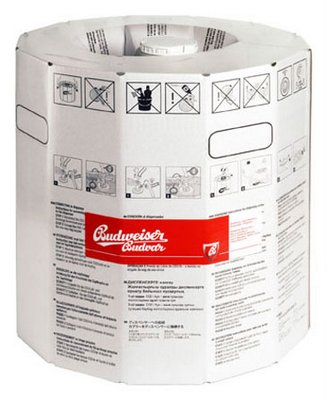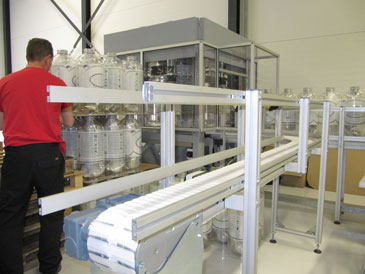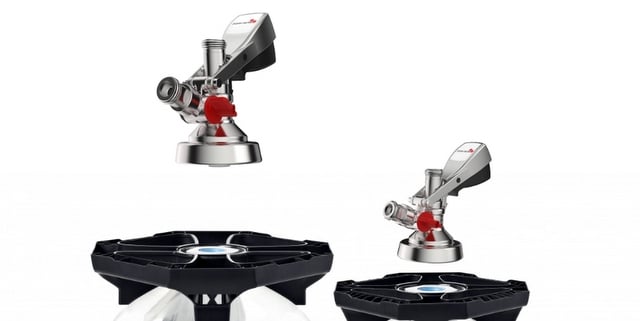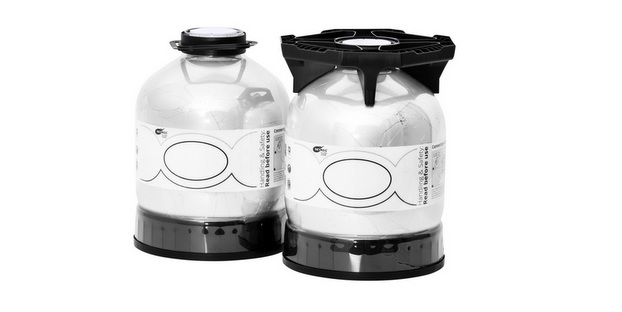KeyKeg, a European vendor of one-way kegs (that the Craft Brewing Business team met at the Craft Brewers Conference) had several exciting announcements this week, showing the growing demand for the one-way keg.

Last year, Budweiser Budvar N.C., substantially increased its beer export in non-returnable kegs of the KeyKeg system, having exported 4,700 hectolitres (about 4,000 barrels) of pale and dark lager in this type of packaging to 14 countries, which represents a year-over-year increase of 127 percent. The KeyKeg thus became one of the factors helping to accomplish the highest export in the history of the brewery in 2012.
“When launching the non-returnable kegs, our primary objective was to introduce the sale of keg beer in faraway destinations or to increase it,” said Budweiser Budvar’s export sales department manager Renata Pánková. “We had wanted to eliminate administrative and logistics barriers that had been preventing or, for different reasons, much complicating beer supplies in the usual returnable kegs to certain destinations. The results surpassed our every expectation. The KeyKeg thus became one of the factors helping to succeed in our 2012 export.”
Obviously, that’s the word from a Big Beer entity, but the interest the company has seen exporting in the one-way packaging is a news item for craft brewers to note.
“The most beer in non-returnable kegs was exported to Russia, Ukraine and Australia,” Pánková added. Among other important customers also are Vietnam, Japan, New Zealand, China or Hong Kong. We expect the demand for beer in this type of packaging to further grow. We consider e.g. South and Central America, particularly Mexico having an interesting trading potential.”
On a much smaller scale, Ayinger, a medium-sized brewery located in Bavaria, a famous beer-brewing region in Germany, recently chose KeyKeg for its distribution needs.
“So far we’re filling our Fest-Märzen and J’ahrhundertbier in KeyKeg. We age both of these beers in KeyKeg, since KeyKegs turn out to be excellent for secondary fermentation,” said Gertrud Hein-Eickhoff, Ayinger’s export sales manager. “Demand for these draught beers in KeyKeg is rising sharply, which only makes sense, since putting our beer in KeyKeg ensures the quality, and both we and our customers can sell more of them.
“We’re seeing rising demand from countries like the United States, China, Italy, Finland, Sweden and the Netherlands. The first shipments of KeyKegs are underway or have already arrived, and we’re looking forward to the feedback,” she continued.
KeyKeg believes its system is a technological innovation in the field of packaging and distribution of drawn beer. When using them, the financial, administrative and time sensitive considerations of demanding return transport of empty barrels from the tap place back to the brewery are removed from the logistics chain. The beer is filled into an internal sack made from special impermeable foil and the compressive gas has no contact at all with the beer during drawing. Therefore, the KeyKeg can keep the sensory and microbiological stability of the beer in the same way as the standard stainless steel keg.
The KeyKeg is also of significantly lower weight than the stainless steel keg. While an empty 20 liter KeyKeg weighs 1 kg, an empty stainless steel keg of the same volume weighs 9 kg.

New product development: Slimlines
Lightweight Containers spent the first three months of 2013 testing and optimizing its Slimline production line. Now they’re finally ready to roll. Production has been running non-stop for a month. The first batches of KeyKeg 20 Slimlines are ready to be shipped.
Bert Hanssen, research and development director, said: “We’ve taken the time to do extensive testing on the KeyKeg 20 Slimlines from the new production line. We wanted to be absolutely sure that the production batches meet our high standards for the various phases of its life cycle: filling, transport and dispensing. The batches were subjected to a whole battery of laboratory and field tests. The production versions finally met our stringent requirements.”




Leave a Reply
You must be logged in to post a comment.